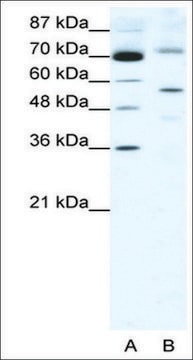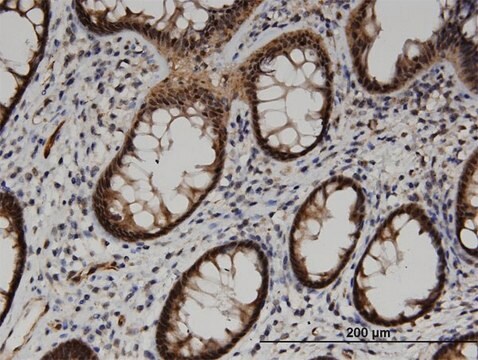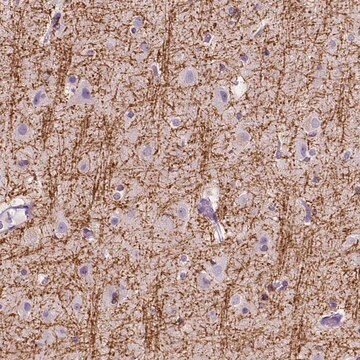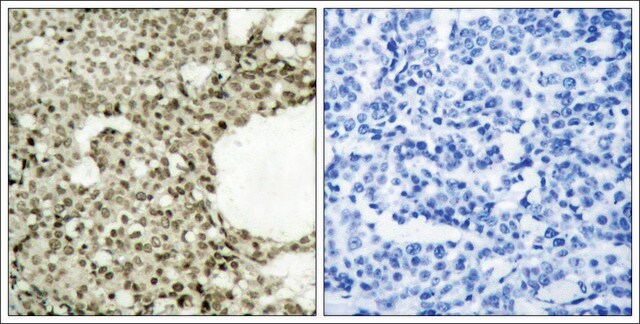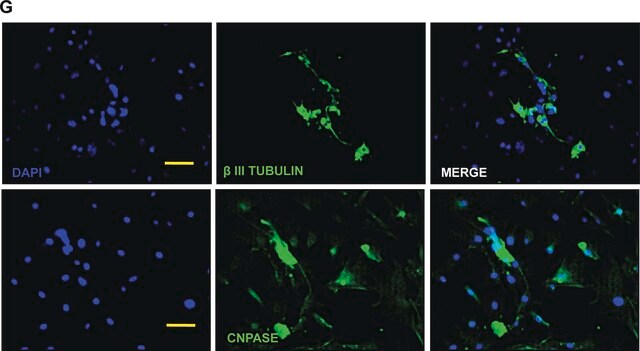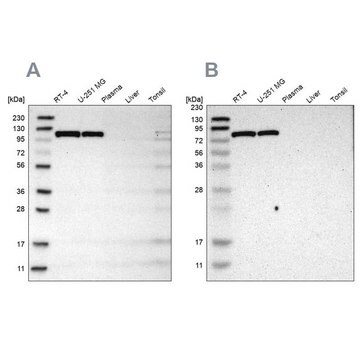SAB1404452
Monoclonal Anti-TCF3, (C-terminal) antibody produced in mouse
clone 5G2, ascites fluid
Synonym(s):
E2A, ITF1, MGC129647, MGC129648, bHLHb21
About This Item
Recommended Products
biological source
mouse
Quality Level
conjugate
unconjugated
antibody form
ascites fluid
antibody product type
primary antibodies
clone
5G2, monoclonal
mol wt
antigen ~38.21 kDa
species reactivity
human
technique(s)
indirect ELISA: suitable
western blot: 1:500-1:1000
isotype
IgG2bκ
NCBI accession no.
UniProt accession no.
shipped in
dry ice
storage temp.
−20°C
target post-translational modification
unmodified
Gene Information
human ... TCF3(6929)
Related Categories
General description
Immunogen
Sequence
EREKERRVANNARERLRVRDINEAFKELGRMCQLHLNSEKPQTKLLILHQAVSVILNLEQQVRERNLNPKAACLKRREEEKVSGVVGDPQMVLSAPHPGLSEAHNPAGHM
Physical form
Not finding the right product?
Try our Product Selector Tool.
Storage Class Code
11 - Combustible Solids
WGK
WGK 1
Flash Point(F)
Not applicable
Flash Point(C)
Not applicable
Certificates of Analysis (COA)
Search for Certificates of Analysis (COA) by entering the products Lot/Batch Number. Lot and Batch Numbers can be found on a product’s label following the words ‘Lot’ or ‘Batch’.
Already Own This Product?
Find documentation for the products that you have recently purchased in the Document Library.
Our team of scientists has experience in all areas of research including Life Science, Material Science, Chemical Synthesis, Chromatography, Analytical and many others.
Contact Technical Service